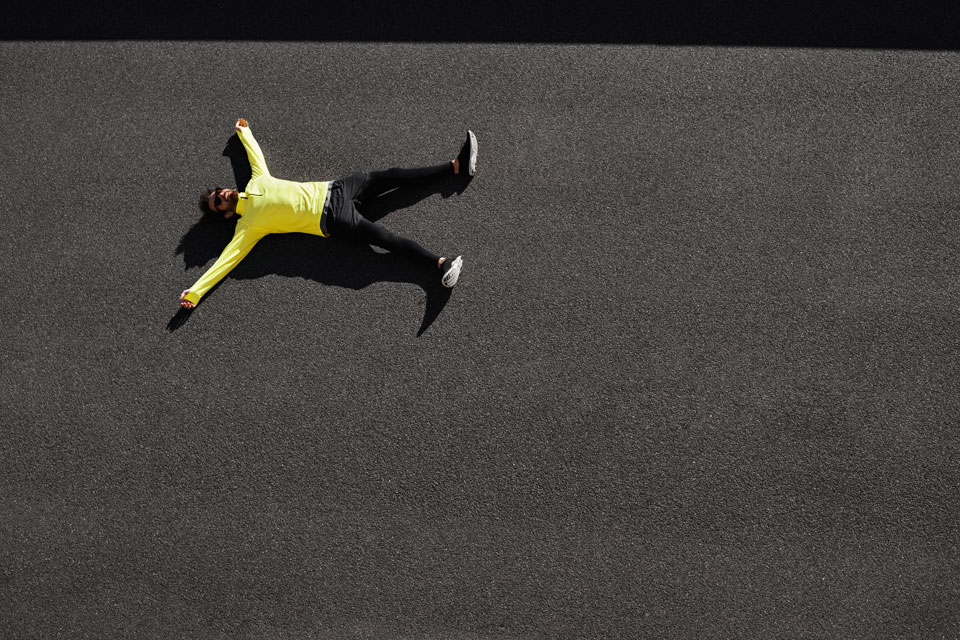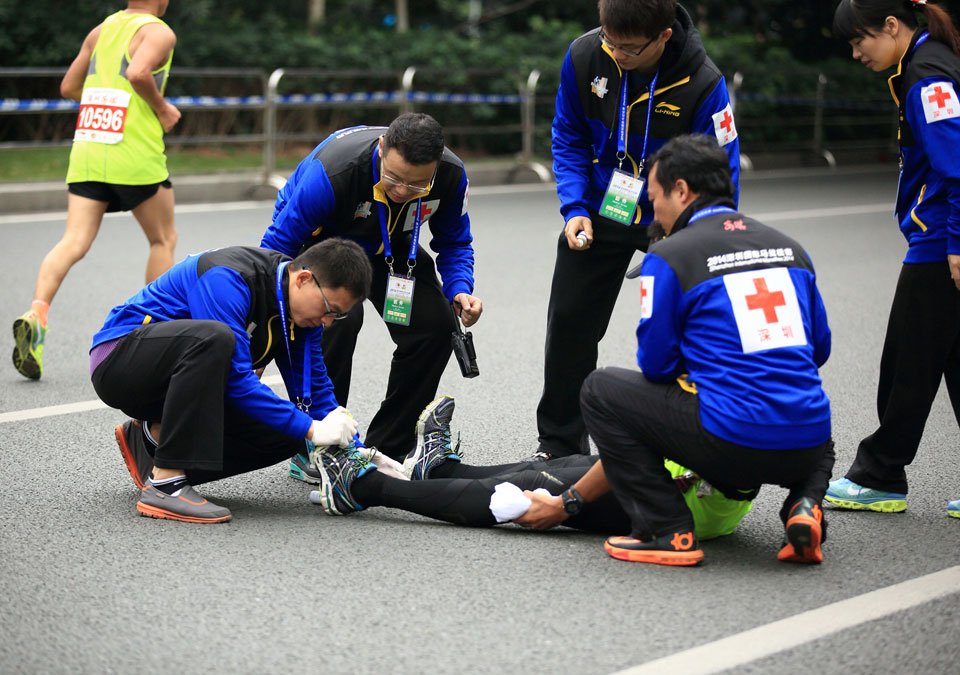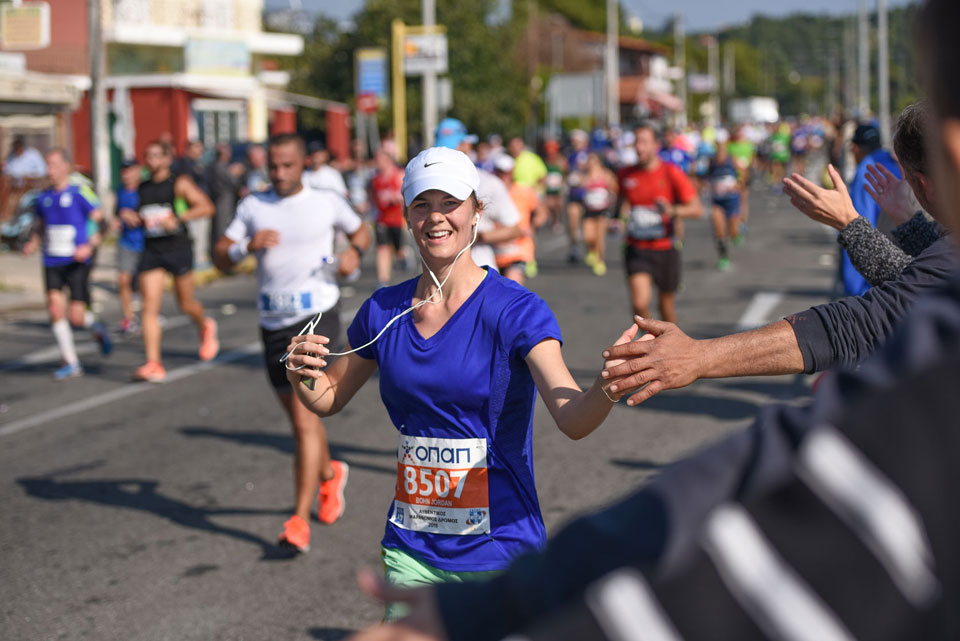Do you believe that as long as you run regularly, you can throw caution to the wind and burn candles at both ends? Do you ignore in-depth health check-ups, assuming that just because you feel fit, you are?
I asked both questions when I read about the unfortunate incident of the 37-year-old Singapore participant at the Bintan Reebok Spartan Race on 19th November.
Despite medical intervention, Mr. Yusof’s heart couldn’t stand up to the grueling 21km obstacle race staged over two days that included daunting challenges including rope and wall climbs.
The extreme stress may proved too much for his cardiovascular system and he passed away after a cardiac arrest. Can you imagine how fellow athletes felt—how many may have asked themselves, “Could that happen to me, too?”
Not as rare as you may believe
When I began to research this blog topic, I figured that athletes—and in particular, competitive runners—lived longer and healthier lives than most.
Then, I began to look at facts, figures and case studies, only to discover that men as young as 30 have suffered fatal heart attacks while competing in a variety of marathon types. Sadly, most experienced no symptoms, nor did they have a history of previous heart issues.
Dr. Dan Tunstall Pedoe, a London physician writing for the “Sports Medicine,” concluded that sudden deaths at marathons strike down 1-in-80,000.
Because many of these deaths are seen in men under 40, Pedoe discovered a “silent, genetic” cause, already being studied by Baylor University’s Dr. Peter A. McCullough, himself a research pioneer in hypertrophic obstructive cardiomyopathy (HOC). Doctors call this “the silent killer.”

The silent killer
What’s HOC? A condition that causes the heart wall to thicken in one area, impeding pumping blood so it doesn’t circulate properly in that area. People are born with the predisposition, but it can’t be diagnosed at birth.
Instead, it shows up around puberty when cardiac muscle cells, proteins and fibers mutate, leading to classic heart wall thickening. Even active teens may develop this and have no symptoms at all.
The silent condition continues unnoticed until a physiological event—like running at top speed—takes place. This causes a chain reaction: there’s less oxygen available for the heart muscle, yet it floods with adrenaline and there’s not enough blood to keep the cardiovascular system going.
According to the “New England Journal of Medicine,” nearly 80-percent of runner deaths occur in the last 25-percent of half or full marathons as runners push hard to get to the finish line.

Other causes of heart attacks in runners
The silent killer isn’t the only condition that can trigger cardiac arrest in relatively young runners. It’s possible to experience ventricular tachycardia, a condition that precedes cardiac arrest, without warning, but this can be treated by defibrillation, if addressed immediately, says Dr. Justin E. Truvax writing for “Clinical Cardiology.”
Cases of “hypertrophic cardiomyopathy, anomalous coronary arteries, and coronary atherosclerosis” have also been diagnosed in runners after experiencing symptoms during or following marathons, though oftentimes, improper endurance training is the culprit.
Have I scared you into worrying about conditions over which you may have no control? Fact is, runners can find out whether they are at risk for genetic abnormalities simply by having an echocardiogram (ultrasound).
This test picks up around 75-percent of asymptomatic conditions, which is why sports doctors often suggest them to athletes worried about heart health. Many equate them to ultrasounds pregnant women receive to make sure babies develop properly.

7 questions to ask yourself
Every athlete must determine whether or not it’s worth the money and effort to get an echocardiogram, but I have discovered that there are other things I can do to stay fit and healthy, which is why I offer you 7 questions to ask about your own lifestyle and heart health commitment.
1. Does weather matter?
Of course it does. Why do you think Singapore issues warnings when air quality is bad? Sun and humidity can trigger extreme physical reactions. According to the Paris-based journal “PLOS One,” the optimal temperature for professional male and female marathoners is between 20–25°C.
2. Do signs and symptoms matter?
Having already examined “the silent killer,” it’s important to note that heart disease can “sneak up” on anyone—including me. So even if your mates urge you to keep going for that personal best, ignore them if you experience shortness of breath, fatigue, nausea, pain radiating down the left arm, extreme perspiration and noticeable swelling. These signs can be nothing or the start of a cardiac episode.

3. Does body size matter?
I’ve had occasion to run with an obese woman who swears that she’s in top shape. I believe her; she has outrun me on occasion. But I worry that her big belly could be taking her straight down a road to a cardiac emergency. When one’s waist size expands, it’s a sign that there could be blood sugar issues and triglyceride spikes, both of which can lead to heart problems.
4. Do genetics matter?
You might be amazed to discover the number of smart people who think that because their parents are heart healthy, they’ll be immune to any number of cardiac issues. In fact, grandparents and distant relatives may be part of your DNA—yet another reason to check into your family’s history in addition to curiosity!
5. Does lifestyle matter?
Big time. According to scientists, cardiovascular disease won’t strike a healthy body, and if it does, you’ll be warned. You can prevent cardiovascular disease by acknowledging that fitness and health are not the same. Plenty of people are fit and unhealthy—even elite ultra-endurance athletes—especially if they over-train, make bad dietary choices, ignore inflammation and stress and don’t sleep enough.
6. Do race organisers matter?
They do, because without them, who would we thank for giving us chances to show off our running mettle? But it’s neither wise nor sensible to allow them to push you past what you’re comfortable doing. The same goes for coaches who invest their hopes and dreams in your success and insist that you stick to training standards that may not be right for you. You are your own best advocate.
7. Does age matter?
If elite marathoner Clarence DeMar were alive, he would be happy to answer this question. DeMar won a 1924 Paris Olympics and multiple Boston Marathon medals—all with a previously diagnosed heart murmur. When he died at age 70 from cancer, his cardiovascular system was amazingly healthy because he took such good care of himself. Therefore, I offer you this prescription: Manage your stress levels. Don’t ignore inflammation or your diet, and train for a long life on your own terms!
Why do you suppose athletes ignore pain? Does it originate in the way they are raised or is it a result of being told to push hard because that’s what winners do?




